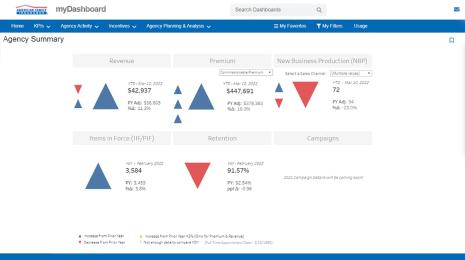European businesses navigate pandemic: YouGov survey finds data gives critical advantage, optimism, and confidence
With a surge of COVID-19 cases triggering a second shutdown in Europe, continued disruption is imminent as businesses face more difficult decisions and challenging realities in the days ahead. We remain in a fight or flight mode, and with that comes added pressure to get things right, to quickly learn from our mistakes, and understand our data. As 2021 approaches, the future remains uncertain, weighing on the minds and hearts of business leaders, but data can be a guide—helping organisations out-perform and out-survive.
Our team in Europe, and frankly around the globe, has seen change, agility, digital transformation, and data accentuated by the pandemic and prioritized by organisations as they navigate a new normal and chart a plan forward. No journey is the same, however. With organisational challenges and shifting customer and business priorities, some businesses are lightly tip-toeing into the age of data while others are already reaping the benefits and building a “memory bank” by learning, testing, and understanding their data.
We partnered with YouGov, an international research data and analytics group headquartered in London, to survey more than 3,500 senior managers and IT decision makers in four major European markets: the UK, France, Germany, and the Netherlands. We explored several key questions like:
- What are the benefits that organisations experience when using and relying on data (especially during the pandemic)?
- What lessons have businesses learned thus far, as a result of the pandemic?
- What will companies prioritise when it comes to future plans and what role will data play?
In this blog post, we’ll share top learnings from our research. Explore the full results in this visualization on Tableau Public.

The data divide between European businesses
Greater optimism amongst data-driven leaders, businesses
Nearly 60 percent of survey respondents identified as data-driven, which positively indicates that leaders are prioritising digital acceleration and data transformation regionally. Most (80 percent) of that same group believes that being part of a data-driven organisation puts them at a greater advantage than the businesses who aren’t data-driven. They also have greater optimism about the future of their business because analytics are giving them the clarity to handle obstacles while seizing on the opportunities in their sights.
Those same organisations expressed multiple advantages gained from using data, including: more effective communication with employees and customers; making strategic decisions more quickly; and increased team collaboration for decision making and problem solving, which is essential when new problems surface weekly—ranging in complexity and significance to the business. Now in a second phase of lockdown across many European countries, we can see how data-driven organisations responded effectively the first time, what they learnt (good and bad), and how they’ll apply that as the cycle repeats.
Some organisations benefiting from a data-focused approach, before and during the pandemic, are Huel, a nutritional meal replacement provider based in the UK, and ABN AMRO, one of the world’s leading providers of clearing and financing services.
- A fast-growing start-up, Huel struggled with delayed decision-making because analytics took too long and required too much effort. By embracing Tableau’s interactive, self-service analytics, they’re democratising data worldwide and creating a data-driven company culture. “Our data-driven strategy is helping us respond to consumer behaviour—enabling us to pivot and react with greater speed and clarity. It’s all about empowering the full organisation through data,” said Jay Kotecha, a Huel data scientist.
- Speed, high volume transactions, security, and compliance are challenges that global clearing banks face daily—particularly during the pandemic as settlement demand grew 3x the daily average from market volatility. ABN AMRO needed access to accurate data to monitor their settlement process and analyse counterparty risk in real-time and used Tableau analytics to securely explore data and act on insights with speed, agility, and clarity.
Organisations that aren’t data-driven at a disadvantage
While the YouGov study revealed favourable perspectives with many European businesses, some haven’t fully grasped the value and importance of data. Only 29 percent of respondents who classified themselves as non data-driven, see data as a critical advantage and 36 percent are confident that decisions are supported by data. Furthermore, 58 percent of the non-data driven companies found themselves more pessimistic about the future of their business. They enter the future slightly data-blind because they want to reduce or stop investing in data skills, which means their analysts, IT, and employees are less equipped with data-related resources and their business will likely lag behind competitors who embrace, and therefore thrive, with data.
Key takeaways
Data literacy is a priority for businesses that are data-driven, increasing competitiveness
Even as some respondents recognise data’s benefits, nearly 75 percent of the data-driven companies across all four markets still see a need to continue (or increase) spending on data skills training and development in the future. “We started building data skills across the business in 2013, and the pandemic has definitely seen us benefit from these capabilities,” explained Dirk Holback, Corporate Senior Vice President and CSCO Laundry and Home Care at Henkel, one of the world’s leading consumer goods and industrial companies based in Düsseldorf, Germany. Also a Tableau customer, Henkel set a strong data foundation before the pandemic hit and was glad that they didn’t let up on data analytics training. Employees now interpret data and apply it to their business area while juggling dynamic regulations, processes, and supply chains.
Investment in data literacy creates future success, as we’ve seen with many of our European customers like Henkel, and doesn’t necessarily require large, enterprise efforts. Even smaller, incremental projects that foster data skills, knowledge, and analytics passion—like team contests, learning hours, or individual encouragement from a supervisor to participate in a relevant training—can create a foundation that benefits your organisation for years to come.
Benefits gained from a data-literate, data-driven culture can include:
- Leaders, business users, and IT who are confidently adapting in real-time and planning for an uncertain future
- Reduced time to insights
- A greater sense of community, enterprise-wide
- A more motivated, more efficient workforce
- More informed decision-making with a single source of truth
- A quicker path to failure...and effective recovery
- Everyone speaking the same language with increased data access and transparency
- Cross-team collaboration and innovation on behalf of the business and customers
- A pivot from data paralysis to business resilience and growth
Agility, swift execution and better quality data is mandatory
With all survey respondents, we found three top-of-mind priority areas resulting from lessons learnt during the pandemic. They include: a need for greater agility with changing demands (30 percent), effectively prioritizing and delivering on projects faster (26 percent), and needing more accurate, timely, and clean data (25 percent). We anticipate that in the next 12 months, these areas, amongst others, are where European businesses will focus significant time, attention, and resources. Likewise, they will turn to technology partners who can support this work as they think about and swiftly become digitally, data-driven organisations who both survive and thrive in the face of adversity.
The value of data analytics to achieve resilience
Will we experience another 12 or six months of disruption? It’s hard to predict the future, but, what we inherently know from observing and listening to customers or prospects, plus talking with tech stakeholders in various industries, is that resilient organisations empower their people with data. This allows them to creatively solve problems, respond to change, and confidently act together.
Now, businesses should unite their people with data—to gain a shared understanding of their situation, establish realistic and attainable goals, and to celebrate what might be small wins as they build resilience while facing adversity.
Even if your organisation is less data-driven or feels like it doesn’t have the right expertise, you can take cues from others that found agility and resilience with data and analytics. Becoming data-driven is not out of reach; it’s an achievable goal to strive for with the support of easy-to-use, flexible solutions and resources that will help you quickly start and develop the right culture. To ensure your organisation harnesses the power of being data-driven, consult these resources and simple steps to help you get all hands on data.
Learn more about the YouGov research and download the e-book.
Related Stories
Subscribe to our blog
Get the latest Tableau updates in your inbox.








